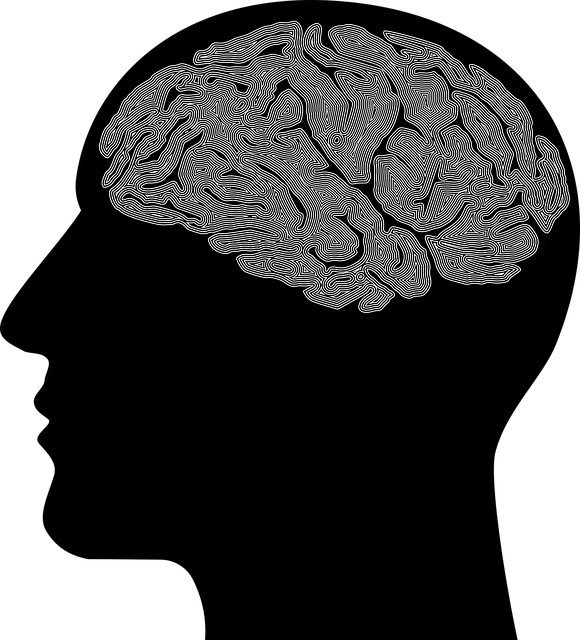The Kaiser Permanente behavioral health center in Highlands Ranch operates Crisis Intervention Teams (CITs) that are vital for swift, effective mental health support. Their comprehensive CIT training programs equip first responders with de-escalation techniques and crisis prevention strategies through interactive workshops and simulations. This holistic approach enhances patient outcomes, reduces escalations, and improves community well-being by fostering resilience and early intervention. Continuous improvement strategies, including peer reviews and self-care programs, ensure the CITs remain effective in managing psychological emergencies.
“In today’s complex healthcare landscape, Crisis Intervention Teams (CITs) stand as a vital resource in behavioral health. This article explores the critical role of organizations like Kaiser Permanente Behavioral Health Center Highlands Ranch in training these teams, which often serve as a first line of defense in managing crisis situations. We delve into essential components of effective CIT training, highlighting its profound impact on community and healthcare settings. Additionally, we provide implementation strategies and continuous improvement tactics for successful CIT program management.”
- Understanding Crisis Intervention Teams: A Vital Resource in Behavioral Health
- The Role of Kaiser Permanente Behavioral Health Center Highlands Ranch in Training Programs
- Key Components of Effective Crisis Intervention Team Training
- Benefits and Impact on Community and Healthcare Settings
- Implementation and Continuous Improvement Strategies for Successful Programs
Understanding Crisis Intervention Teams: A Vital Resource in Behavioral Health

In today’s complex social landscape, Crisis Intervention Teams (CITs) play a pivotal role in behavioral health support. These specialized teams, often found within healthcare settings like the Kaiser Permanente behavioral health center in Highlands Ranch, are designed to respond swiftly and effectively during times of crisis. CIT members are equipped with essential skills in crisis intervention guidance, enabling them to de-escalate high-risk situations and provide immediate support to individuals struggling with mental health challenges or suicidal ideation.
The value of these teams extends beyond acute interventions. By fostering compassion cultivation practices, CITs contribute to long-term depression prevention strategies. Through their training, members learn not just technical responses but also the art of connecting with individuals in need, offering a sense of hope and safety. This holistic approach ensures that the Kaiser Permanente behavioral health center in Highlands Ranch isn’t merely a stopgap measure but a vital resource in the community’s overall well-being, empowering both patients and caregivers with the tools to navigate crises effectively.
The Role of Kaiser Permanente Behavioral Health Center Highlands Ranch in Training Programs

The Kaiser Permanente Behavioral Health Center Highlands Ranch plays a pivotal role in shaping mental health support within the community by offering comprehensive crisis intervention team (CIT) training programs. These initiatives are designed to equip local first responders, healthcare professionals, and volunteers with the necessary tools to handle psychological emergencies effectively. The center’s expertise lies in fostering emotional regulation skills among participants, enabling them to provide immediate assistance during crises.
Through interactive workshops and simulations, the CIT training covers various aspects of risk management planning for mental health professionals. This includes teaching strategies for de-escalation, crisis prevention, and resilience building. By engaging with these techniques, trainees gain confidence in managing high-pressure situations, ultimately improving their ability to support individuals experiencing severe emotional distress or psychotic episodes.
Key Components of Effective Crisis Intervention Team Training

Effective crisis intervention team (CIT) training programs are multifaceted and crucial in equipping healthcare professionals with essential skills to navigate challenging situations at the Kaiser Permanente behavioral health center Highlands Ranch or any healthcare setting. A well-rounded training curriculum should include a combination of theoretical knowledge, practical exercises, and interactive workshops.
The core components involve enhancing communication skills, particularly active listening and empathy building strategies, which foster better patient engagement and understanding. Training should also focus on burnout prevention strategies for healthcare providers, ensuring they can recognize and manage their own well-being while supporting colleagues during crises. Additionally, role-playing scenarios and debriefings are vital to practicing crisis management under controlled conditions, allowing teams to refine their responses and build confidence in handling real-world emergencies.
Benefits and Impact on Community and Healthcare Settings

The implementation of crisis intervention team training programs brings about significant benefits and positive impacts in both community and healthcare settings. One notable example is the Kaiser Permanente behavioral health center in Highlands Ranch, which has embraced these initiatives to enhance its services. By equipping staff with comprehensive crisis intervention guidance, the center can better support individuals experiencing mental health crises. This includes teaching essential coping skills development, enabling healthcare professionals to provide immediate assistance while promoting emotional regulation.
Such programs empower community members and healthcare workers alike, fostering a culture of resilience and early intervention. In Highlands Ranch, this has translated into improved outcomes for individuals in distress, as timely crisis intervention can prevent escalations and reduce the burden on emergency services. This holistic approach not only benefits those seeking support but also contributes to creating a safer, more supportive environment within the community.
Implementation and Continuous Improvement Strategies for Successful Programs

For crisis intervention team training programs to be truly successful, implementation and continuous improvement strategies are paramount. At the Kaiser Permanente behavioral health center in Highlands Ranch, for instance, regular peer reviews and debriefings after each simulated crisis scenario have proven invaluable. These sessions allow team members to reflect on their responses, identify areas for enhancement, and share best practices. By fostering an open and supportive learning environment, the center encourages continuous improvement, ensuring that the team remains equipped to handle a wide range of crises effectively.
Additionally, integrating Self-Care Routine Development for Better Mental Health and Mental Wellness Coaching Programs Development into the training curriculum further strengthens the program’s effectiveness. Healthcare providers at Kaiser Permanente Highlands Ranch understand that mental wellness is integral to their ability to support others. Therefore, they prioritize personal well-being through regular coaching sessions and structured self-care routines, which enhance resilience and prevent burnout. This holistic approach not only benefits individual mental health but also improves overall team performance, enabling them to provide more compassionate and competent care to those in need.
Crisis intervention team (CIT) training programs, particularly those offered by the Kaiser Permanente Behavioral Health Center Highlands Ranch, play a pivotal role in enhancing community and healthcare settings’ ability to manage crises effectively. By focusing on key components such as de-escalation techniques, cultural competency, and collaborative problem-solving, these programs empower participants to provide vital support during moments of crisis. The benefits are far-reaching, improving patient outcomes, reducing reliance on restrictive practices, and fostering a more compassionate and informed community. Continuous improvement strategies, including regular updates and ongoing evaluation, ensure that CIT training remains relevant and impactful in an ever-evolving healthcare landscape.






